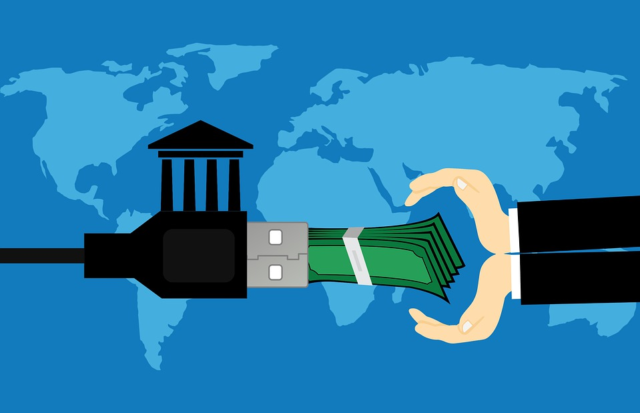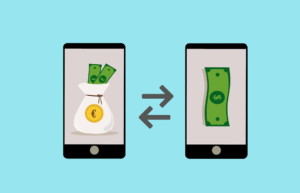
When it comes to sending money online, safety should be your number one priority. There are many scams out there that can leave you out of pocket, so it’s important to be aware of what to watch out for. In this blog post, we will give you some tips on how to stay safe when sending money online. We’ll also recommend some trustworthy services that you can use. So, whether you’re paying a bill, transferring money to a friend, or buying something online, make sure you follow these tips! Let’s get started
Be Aware of Scams
The first and most important tip is to be aware of scams. There are many different types of scams, but they all have one thing in common – they’re designed to trick you into giving away your money. If something sounds too good to be true, it probably is. Be cautious of any offers that involve sending or receiving money, especially if you don’t know the person very well. If you’re not sure whether something is a scam or not, do some research online or contact the company directly to check.
Some popular scams include Nigerian prince scams, fake charity scams, and phishing emails. So, make sure you’re only sending money to someone you know and trust, and be wary of any unexpected offers.
Choose a Reliable Service
Once you’re aware of the different types of scams out there, it’s time to choose a reliable money transfer service. There are many different companies that offer this service, so it’s important to do your research before you decide which one to use. When you’re looking for a money transfer service, make sure you check that it’s regulated by the Financial Conduct Authority (FCA) or another financial regulator.
This means that the company is subject to strict rules and regulations, so you can be sure your money is safe. When you’re looking for a service to send money online, you should also look for a company with good customer reviews, as this is a good indication of the level of service you can expect. There are many different ways to send money online, and each has its advantages and disadvantages. Some popular methods include bank transfers, money transfer services, and peer-to-peer payments.
See the Areas They Cover
Another important factor to consider when choosing a money transfer service is the countries they cover. Make sure you check that the company you’re using can send money to your recipient’s country, as not all companies offer this service. You should also check the fees for sending money to different countries, as these can vary significantly.
Don’t Use Public Wi-Fi
When you’re sending money online, it’s important to make sure you’re using a secure connection. Avoid using public Wi-Fi when possible, as this can leave your personal and financial information vulnerable to hackers. If you do need to use public Wi-Fi, make sure you use a VPN (a virtual private network) to encrypt your data. If you’re not careful, someone could easily intercept your information and steal your money. For example, if you’re using a Wi-Fi hotspot in a coffee shop, anyone else using that same hotspot could access your data. So, it’s important to be extra cautious when you’re sending money over public Wi-Fi.
Make Sure the Website is Encrypted
When you’re entering your personal and financial information on a website, you need to make sure the site is encrypted. You can check this by looking for a padlock icon in the address bar of your browser. This means that the site is using SSL (secure socket layer) encryption, which will protect your data from being intercepted. SSL encryption is a must-have for any website that deals with sensitive information, so make sure you check for it before you enter your details. You can find this information by looking at the website’s terms and conditions or privacy policy.

Choose a Strong Password
When you’re creating an account with a money transfer service, it’s important to choose a strong password. This will help to protect your account from being hacked. A strong password should be at least eight characters long and include a mix of uppercase and lowercase letters, numbers, and symbols. Avoid using easily guessed words like “password” or your name. It’s also a good idea to use a different password for each of your online accounts so that if one is hacked, the others will remain safe. And if you’re having trouble coming up with a strong password, you can use a password manager to help you out.
Don’t Leave Your Credit Card Information
When you’re making a payment on a website, you shouldn’t memorize your credit card information. This is because if the website is hacked, your credit card details could be stolen. Instead, you should use a service like PayPal or Google Wallet, which is more secure. And if you’re ever asked to enter your credit card information on a website, make sure you check that the site is encrypted before you do so.
Use a Firewall
Another way to stay safe when you’re sending money online is to use a firewall. A firewall will help to protect your computer from being hacked. You can either use a software firewall or a hardware firewall. A software firewall is a program that runs on your computer and helps to block incoming connections from hackers. A hardware firewall is a physical device that sits between your computer and the internet. It will filter traffic and block any suspicious activity.
Sending money online is a convenient way to send money to friends and family, but it’s important to be aware of the risks involved. By following these tips, you can help to keep your personal and financial information safe when you’re sending money online. So, first of all, be aware of scams. There are many scams out there that target people who are sending money online. Be sure to research any service you’re thinking of using before you sign up. And if you’re ever asked to enter your personal or financial information on a website, make sure you check that the site is encrypted first. We hope this article was helpful to you.


































